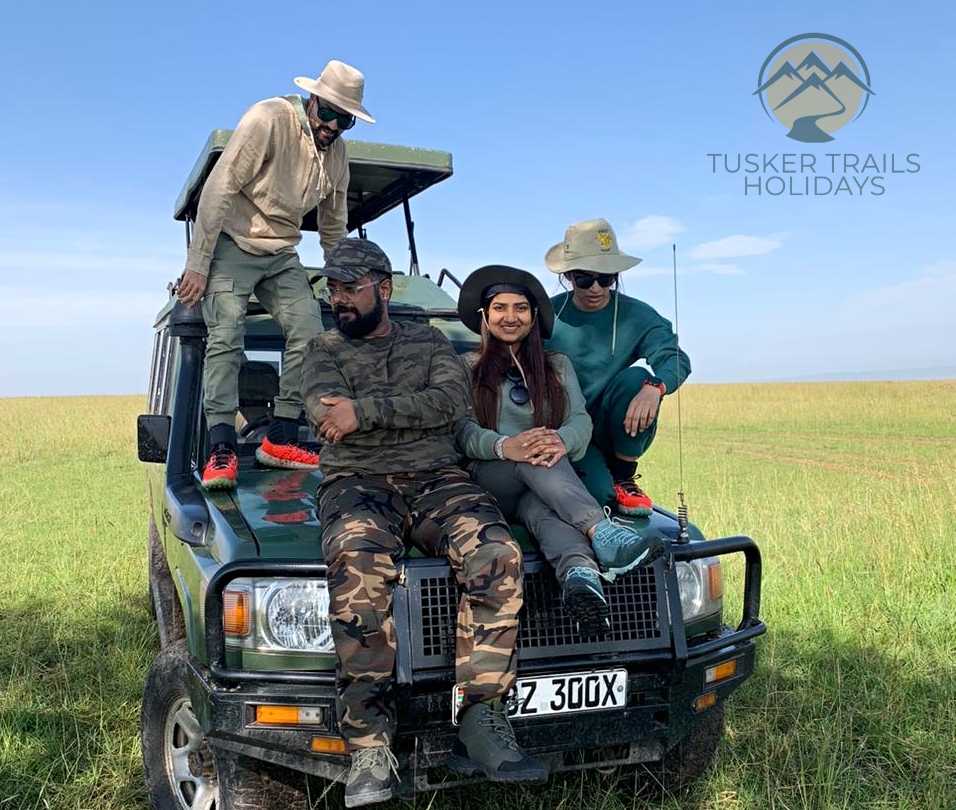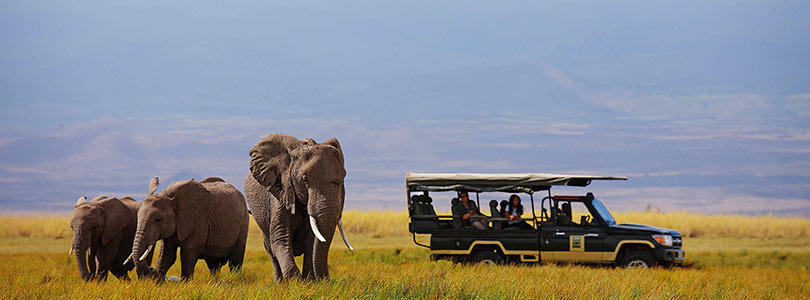For a relaxing holiday in Mombasa Kenya, it is vital to think about the safety and security. Here are some important points to be aware of:
1. General Safety
Stay Informed. Stay up-to-date with local news and any travel advice given by the country you're traveling to.
Sign up at the Embassy of your choice.
2. Health Precautions
Vaccinations. Be sure you are up-todate with your regular vaccinations.
Mombasa's malaria is an endemic. Use antimalarial medications, insect repellents, lie down in mosquito nets and wear long-sleeved clothing at night.
Food safety and water. Drink bottled water and stay clear of the use of ice. Be wary of street food.
3. Personal Security
Avoid walking alone at night: Stay in well-lit, populated areas. Avoid walking on beaches or in isolated areas after it gets dark.
Utilize hotel safes to store valuable items such as currency, passports, or other important items. Do not display valuable items such as electronic gadgets and jewelry.
Reliable Transport: Only use licensed taxis. You can also choose taxi-hailing services or transport offered by the hotel. Beware of taxis that are not marked.
4. Local Laws and Customs
Respect Local Culture: Dress modestly, especially when visiting religious places. Pay attention to the customs and traditions within your community.
Kenyan Drug laws are very strict, and they carry serious penalties. Do not consume illegal substances.
Photography: Always get permission before taking photos of people, especially in rural areas, or of government or military structures.
5. Beach Safety and Water Safety
Swim Safely: Pay attention to local recommendations regarding swimming conditions and currents. Make sure you are in designated swimming areas.
Marine Life: Be aware of marine wildlife like jellyfish and urchins. If you walk along the beach, make sure you wear suitable footwear.
6. Crime Prevention
Petty Crimes: Pickpocketing bag stealing and other small crimes can happen in busy areas. Keep your belongings close and watch out for suspicious behavior.
Avoid strangers who seem to offer excessive assistance or make offers that sound too appealing. Utilize certified tour operators.
Keep emergency numbers handy for emergency services: Emergency contact numbers: (999) Police (999), Ambulance (9999). It is essential to keep the contact information of the embassy or consulate in mind.
7. Natural Hazards
Weather: Mombasa's climate is tropical, and could cause massive rains or flooding particularly during the rainy seasons (April-June) and from October to November. Forecasts for weather are crucial.
Sun Protection: Use sunscreen, wear hats, and drink plenty of water to guard against sunburn and heat exhaustion.
8. Travel Insurance
Comprehensive Protection. You should ensure that you have a travel insurance policy that covers emergency medical situations, theft, loss, or travel interruptions. Make sure that your insurance policy covers water sports or other activities you are planning to engage in.
With these safety considerations You can rest and enjoy your Mombasa holiday. Have a look at the most popular kisite mpunguti marine for website advice including tour and travels, trips to kenya safari, kenya safari holiday, kenya safari tours, tours & safaris, beach in mombasa, tour and travel company, tours and safaris in kenya, african safari tours, tours safari africa and more.

What Are The Weather-Related Considerations I Should Be Aware While On Holiday In Mombasa?
When you plan a trip to Mombasa, Kenya, understanding the local weather patterns is crucial for packing appropriately and making the most of your trip. Here are some important things to think about:
1. Climate Overview
Mombasa is blessed with a tropical climate, with high temperatures throughout the year. Temperatures typically range from 24degC to 32degC.
2. Seasons
The Hot and Humid season (November-April) is characterized by extreme temperatures and high humidity. It's also the busiest tourist season, especially during December and January.
Long rains (April to June) The rainy season is characterized by heavy rainfall and occasional thunderstorms. It is possible for roads to be flooded. It is also the time of year when tourism slows down. tourism.
Cooler season (June through October): The temperatures and humidity levels are the lowest during this time. The general weather is pleasant, making it the ideal time to enjoy outdoor activities.
Short Rains: In this period, there are fewer and less severe rain showers. The rains tend to be only for a short time, but will be followed by a bit of sunshine.
3. Packing Tips
Wear lightweight, breathable clothes like linen or cotton to keep cool in humid conditions.
Rain Gear: Bring an umbrella, raincoat and waterproof shoes if traveling during rainy seasons.
Sun Protection: A sunscreen with a high-SPF broad-brimmed cap, sunglasses as well as light clothing and covering your skin with light clothes will shield you from strong sunrays.
Swimwear: Don't forget your swimsuits for the pool and beaches at hotels.
4. Weather-specific activity
Beach Time. The ideal time to be at the beach would be during the cooler season (June through October), when the temperatures are pleasant and the conditions at the beach are optimal.
From November to March the clear and calm waters are perfect for water sports, such as diving, snorkeling and more.
Wildlife watching: The cooler temperatures (June through October) is a great time to go on safaris or take wildlife tours.
5. Health Concerns
Stay hydrated in the hot, humid climate. Drink plenty water, especially when spending time in the outdoors.
The heat-related illnesses: Be aware to the risk of heatstroke or exhaustion. Wear loose clothing and take frequent breaks in shade. Avoid vigorous exercise during heat peak.
6. Adjustments to Travel
Be ready for delays if you intend to travel during rainy season. Certain roads could be blocked, and outdoor activities could be limited.
Rainstorms that cause delays to flights can sometimes cause flight delays. Stay informed about your travel plans and make contingency plans.
7. Environmental Considerations
Natural hazards. Be aware of the dangers of flooding in heavy rains. Keep up to date with the weather, and be sure to follow the safety tips of your local area.
Make sure you are aware of the tides. They can vary greatly. Consult the local tide schedules in planning activities on the beach and swimming.
It is possible to plan your vacation activities more efficiently, pack your bags properly, and enjoy your time in Mombasa and be safe by knowing the weather conditions. Have a look at the top transfer to Diani for site tips including travel tour companies, mombasa tour packages, african safari kenya, safari company kenya, safari company kenya, kenya safari holiday packages, facts about kenya, safari excursions, kenya africa travel, safari trips in africa and more.

What Safari And Tour Plans Should I Be Aware Of Before I Travel To Mombasa Kenya?
If you are planning a trip or safari trip in Mombasa Kenya, it's important to consider all the elements that will make your trip memorable. Here are some important aspects to be aware of:
1. Selecting an Safari or Tour Operator
Reputation - Select a reliable company with a good reputation. You can locate accredited tour operators with the Kenya Association of Tour Operators.
Explore the various package options offered by tour operators. Packages are available in a range of budgets and luxury levels, with varying durations, accommodations and other activities.
Guides - Ensure that the operator has expert and experienced guides who should be certified.
2. The most sought-after Safari Destinations from Mombasa
Tsavo national park Kenya's largest game reserve is divided into Tsavo West (east) and Tsavo West (west). It's famous for its diversity of fauna, which includes elephants, lions, and rhinos.
Amboseli National Park has a massive elephant population, as well as stunning views of Mount Kilimanjaro.
Shimba Hills National Reserve: Near Mombasa It offers beautiful landscapes as well as the opportunity to see rare species like the Sable Antelope.
Maasai Mara: Although farther from Mombasa but it's renowned for the Great Migration and offers an unparalleled wildlife experience.
3. Safaris and Tours Types
Game Drives: Traditional safaris consist of game drives with 4x4 vehicles, which allow for close encounters with wildlife as well as the driver.
Walking Safaris. Guided walking tours provide a unique chance to explore the bush as well as learn about the smaller flora.
Balloon Safaris - Available in parks like Maasai Mara and providing an aerial view of the wildlife.
Beach and bush Combos: Combine a safari with time on the beautiful beaches of Mombasa to have a variety of experiences.
Cultural Tours: Include excursions to villages in the area or historical places like Fort Jesus, Mombasa Old Town and Fort Jesus.
4. Timing and Duration
The best time to visit The dry season (June to October) is the ideal time for viewing wildlife, since animals gather in the vicinity of water sources. The Great Migration in Maasai is typically between the months of the months of July and November.
Safaris vary in length, from day trips to extended adventure. Consider how long you would like to be in the wilderness, and your schedule.
5. What do you need to pack
Clothing Light, breathable clothes in neutral shades. Wear long sleeves, pants and socks for evening protection from mosquitoes.
Walking boots and comfortable walking shoes are essential to any walking safari.
Accessories: Pack sunglasses, a wide-brimmed cap as well as insect repellent and sunscreen.
Gear: Binoculars are vital to wildlife photography as well as viewing. A good camera, with extra batteries and memory cards, is essential.
Medication: Take any medication you require, and bring malaria-fighting medications as well as a basic first-aid kit.
6. Health and Safety
Vaccinations - Ensure that you are covered by all required vaccinations.
Malaria prevention: Wear long sleeves at night, use repellents for insects and take antimalarial medicines.
Food safety and water: Drink bottled or purified water and eat in reputable establishments.
7. Costs of payments
Budgeting is crucial. Budgeting your spending is crucial. Consider all inclusive packages that include meals, activities and lodging.
The majority of operators accept bank transfers as well as credit cards. Check your payment options along with any mandatory deposits.
8. Environmental and Ethical Concerns
Eco-Friendly Operators: Select operators committed to sustainable tourism practices.
Wildlife Protection. Respect wildlife. Maintain a safe and respectable distance. Be careful not to disturb animals. Do not purchase products that are endangered species.
9. Travel Insurance
Coverage - Make sure that your travel policy covers medical emergencies, as well as possible travel disruptions.
10. Bookings and Confirmation
Safaris, particularly in the peak season is extremely sought-after and are often booked fast. Make reservations in advance.
Confirmation : Confirm with your tour guide all of the details including pick-up times, itinerarys and contact details.
Take note of these points to plan an organized and enjoyable safari experience or tour from Mombasa. This will make your holiday in Kenya. Read the recommended kenya holiday packages for blog examples including kenya tourism, kenya tours and travel, tours and safaris, trip tour companies, travel tour companies, kenya safari holiday packages, tours & safaris, kenya mombasa holiday packages, kenya safari and beach, kenya safari and beach and more.
